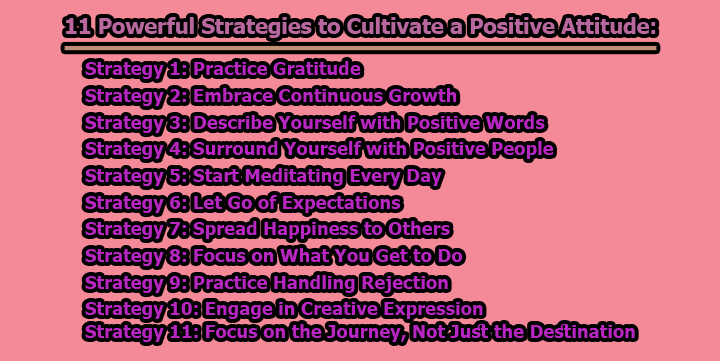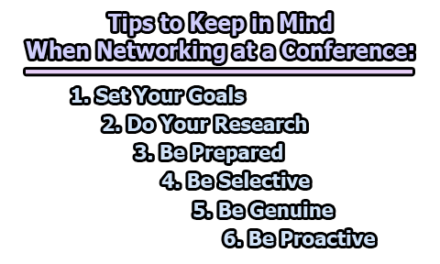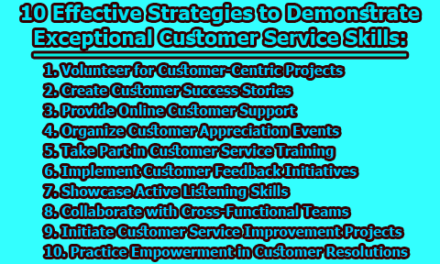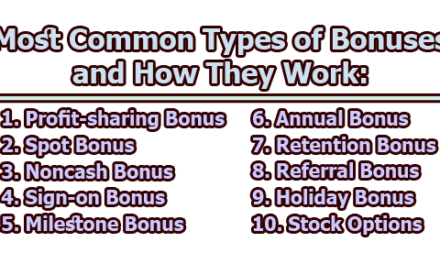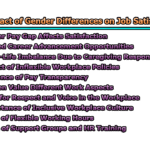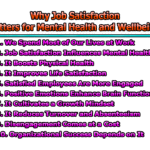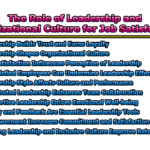11 Powerful Strategies to Cultivate a Positive Attitude:
In our fast-paced and often demanding world, maintaining a positive attitude can be a challenge. Life throws various obstacles our way, and it’s easy to get overwhelmed and fall into a negative mindset. However, cultivating a positive attitude is crucial for our mental and emotional well-being, as well as for achieving success and happiness in life. In this article, we will explore 11 powerful strategies to cultivate a positive attitude, allowing you to approach life with optimism and resilience.
Strategy 1: Practice Gratitude
Gratitude is the cornerstone of a positive attitude. It involves consciously focusing on the positive aspects of your life and appreciating the blessings you have, whether big or small. Make it a daily practice to pause and reflect on things you are thankful for, such as your health, loved ones, job, or even simple pleasures like a beautiful sunrise or a warm cup of coffee. You can keep a gratitude journal where you jot down three to five things you are grateful for each day. This exercise helps shift your focus away from negativity and cultivates a sense of contentment and abundance.
Strategy 2: Embrace Continuous Growth
A positive attitude thrives on the idea of continuous growth and improvement. Set specific, achievable goals for yourself, both personally and professionally, and work towards them with determination. When you make progress towards your goals, celebrate your achievements, no matter how small. Likewise, when you encounter setbacks or failures, treat them as opportunities to learn and grow. Embrace a growth mindset, which is the belief that your abilities and intelligence can be developed through effort and dedication. By adopting this mindset, you’ll approach challenges with resilience and view them as stepping stones toward success.
Strategy 3: Describe Yourself with Positive Words
The way you talk to yourself matters. Replace self-criticism and negative self-talk with self-affirmation. Use positive words to describe yourself, focusing on your strengths, talents, and accomplishments. For instance, instead of saying, “I’m terrible at public speaking,” say, “I am improving my public speaking skills, and I have valuable insights to share.” This shift in language can significantly impact your self-perception and boost your self-confidence.
Strategy 4: Surround Yourself with Positive People
The people you surround yourself with have a significant impact on your attitude and emotions. Seek out individuals who radiate positivity, encourage your growth, and support your aspirations. These positive influences can inspire you during challenging times and uplift your spirits. On the other hand, limit contact with negative people or toxic relationships that drain your energy and foster pessimism. Choose to spend time with individuals who uplift and inspire you to maintain a positive outlook on life.
Strategy 5: Start Meditating Every Day
Meditation is a powerful tool to calm the mind and promote a positive mindset. Set aside a few minutes each day for meditation. Find a quiet, comfortable space and focus on your breath or a specific mantra. As you meditate, observe your thoughts without judgment and let go of any negative or stressful thinking. Regular meditation practice enhances self-awareness and emotional regulation, enabling you to respond to life’s challenges with a more balanced and positive perspective.
Strategy 6: Let Go of Expectations
Having unrealistic expectations can lead to disappointment and negativity. Embrace a mindset of acceptance and non-attachment. While it’s essential to set goals and work towards them, understand that not everything will unfold exactly as you expect. Be open to the possibilities that life presents, and avoid dwelling on rigid outcomes. By letting go of expectations, you free yourself from unnecessary stress and cultivate a more open and optimistic attitude toward life’s uncertainties.
Strategy 7: Spread Happiness to Others
Acts of kindness and generosity not only bring joy to others but also contribute to your own sense of fulfillment and happiness. Engage in random acts of kindness, help someone in need, or simply brighten someone’s day with a genuine compliment or a smile. The positive energy you share will create a ripple effect, not only making the world a better place but also reinforcing your own positive attitude.
Strategy 8: Focus on What You Get to Do
Approach your daily tasks and responsibilities with a sense of gratitude and enthusiasm. Rather than seeing them as burdensome obligations, focus on the opportunities they present. Whether it’s your job, household chores, or personal projects, reframe your mindset to recognize what you “get” to do. For example, instead of saying, “I have to finish this report,” say, “I get to contribute my expertise and make a valuable contribution to my team.” This shift in perspective can make your daily activities more enjoyable and rewarding.
Strategy 9: Practice Handling Rejection
Rejection is a natural part of life, and everyone faces it at some point. Whether it’s a job application, a personal relationship, or a creative pursuit, not every endeavor will yield the desired outcome. Learn to handle rejection with grace and resilience. Instead of dwelling on failure, view it as an opportunity for growth and self-improvement. Use the feedback you receive to refine your skills and approach. A positive attitude towards rejection empowers you to bounce back stronger and continue pursuing your goals.
Strategy 10: Engage in Creative Expression
Engaging in creative activities provides an outlet for self-expression and emotional release. Whether it’s painting, writing, playing music, dancing, or any other form of art, creative expression allows you to channel your thoughts and feelings into something constructive and fulfilling. You don’t have to be a professional artist to enjoy the benefits of creative expression. The process itself is therapeutic and can bring immense joy and positivity to your life.
Strategy 11: Focus on the Journey, Not Just the Destination
In our pursuit of goals and ambitions, it’s easy to become fixated on the end result. However, true happiness and fulfillment lie in the journey, not just the destination. Embrace the process, the ups and downs, the learning experiences, and the growth that comes with it. Each step towards your goal is an opportunity to savor life and experience a sense of achievement. By focusing on the journey, you’ll cultivate a more positive and gratifying attitude toward life.
In conclusion, cultivating a positive attitude is a lifelong journey that requires consistent effort and dedication. By practicing gratitude, embracing growth, surrounding yourself with positive influences, and engaging in self-improvement and creative expression, you can build a foundation for a positive and resilient mindset. Let go of expectations, spread happiness to others, and develop a healthy relationship with rejection. By incorporating these strategies into your daily life, you’ll be better equipped to navigate challenges with optimism, appreciate life’s blessings, and ultimately lead a more fulfilling and contented life. Remember, positivity is a choice, and you have the power to shape your attitude and create a brighter future.
Frequently Asked Questions [FAQs]:
What is the importance of maintaining a positive attitude?
Maintaining a positive attitude is essential for several reasons. Firstly, it improves mental and emotional well-being, reducing stress and anxiety levels. A positive attitude also enhances resilience, helping individuals cope with challenges and setbacks effectively. It fosters a growth mindset, promoting continuous learning and self-improvement. Additionally, positivity has a positive impact on relationships, as people are naturally drawn to those with an optimistic outlook. Finally, a positive attitude is linked to better physical health and overall life satisfaction.
How can I practice gratitude effectively in my daily life?
Practicing gratitude involves consciously acknowledging and appreciating the positive aspects of your life. You can start by keeping a gratitude journal, where you jot down things you are thankful for each day. Express gratitude verbally to loved ones and colleagues, acknowledging their contributions to your life. Practice mindfulness by being fully present in the moment and savoring life’s simple pleasures. With consistent effort, gratitude becomes a natural part of your daily routine.
How do I deal with negative influences and toxic people?
Dealing with negative influences and toxic people requires setting boundaries and prioritizing your well-being. Limit the time you spend with such individuals and focus on surrounding yourself with positive and supportive people. Communicate assertively if necessary, expressing your needs and concerns. Remember that you have control over who you allow into your life, and it’s essential to prioritize your mental and emotional health.
How can meditation help me maintain a positive attitude?
Meditation is a powerful practice that calms the mind and cultivates inner peace. Regular meditation reduces stress and helps you gain better control over your thoughts and emotions. It fosters self-awareness and emotional regulation, allowing you to respond to challenging situations with a composed and positive mindset. Meditation also encourages a sense of gratitude and compassion, promoting a more positive outlook on life.
How can I handle rejection in a positive way?
Handling rejection positively involves reframing your mindset. Instead of taking rejection personally, view it as an opportunity for growth and learning. Understand that rejection is a natural part of life and does not define your worth or abilities. Embrace resilience and use feedback constructively to improve and refine your skills. Maintain a positive attitude by focusing on the lessons learned from rejection and the possibilities that lie ahead.
Can creative expression really impact my attitude?
Yes, creative expression can significantly impact your attitude and overall well-being. Engaging in creative activities provides an outlet for self-expression and emotional release. It allows you to channel your thoughts and feelings into something constructive, which can bring a sense of fulfillment and joy. The creative expression also enhances problem-solving skills, boosts self-confidence, and encourages a positive and optimistic mindset.
How do I shift from a negative to a positive mindset?
Shifting from a negative to a positive mindset is a gradual process that requires self-awareness and intentional effort. Begin by challenging negative thoughts and replacing them with positive affirmations. Practice gratitude daily and surround yourself with positive influences. Engage in activities that bring you joy and fulfillment. Be patient with yourself and celebrate small victories along the way. Over time, these practices will help reshape your mindset towards a more positive outlook on life.
Can a positive attitude really lead to success?
Yes, a positive attitude can contribute to success in various areas of life. When you maintain a positive outlook, you approach challenges with determination and resilience. This mindset enables you to learn from failures, adapt to changes, and persevere in the face of obstacles. Positive individuals tend to attract opportunities and build strong relationships, which can open doors to success in both personal and professional endeavors.
How can I inspire others to adopt a positive attitude?
Leading by example is one of the most effective ways to inspire others to adopt a positive attitude. Embody the principles you wish to promote, such as practicing gratitude, embracing growth, and spreading happiness to others. Share your own experiences of how maintaining a positive attitude has impacted your life. Encourage and support others in their journey towards positivity, and be a source of optimism and encouragement in their lives.
Is it normal to have occasional moments of negativity despite trying to maintain a positive attitude?
Yes, it is entirely normal to experience moments of negativity, even if you are actively trying to maintain a positive attitude. No one is positive all the time, and it’s natural to have ups and downs in emotions. The key is not to be too hard on yourself when negativity arises. Acknowledge the feeling, practice self-compassion, and use positive coping strategies to navigate through those moments. The goal is to develop a positive attitude as a general outlook on life, even while acknowledging and accepting occasional negative emotions.

Assistant Teacher at Zinzira Pir Mohammad Pilot School and College

